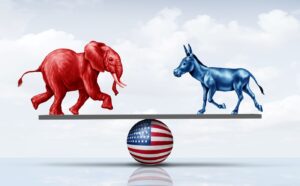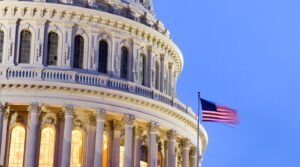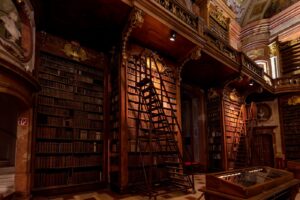Demography is destiny. The next America will be increasingly Latino. That’s simply a fact, and it’s also a blessing, because I believe Hispanic faith and culture are very great goods for our Church and for American life in general. Unfortunately, as facts go, it may also be an indictment, because social data show that Latinos leave the Catholic faith at the same rate as every other ethnic group. So the idea that more Latinos automatically mean a more “Catholic” America is just pious self-delusion.
The late Avery Cardinal Dulles was one of the great American theologians of my lifetime. He grew up in a Protestant family that was very prominent on the national scene, both socially and politically. His conversion to the Catholic faith was viewed by some at the time as rather shocking. But he knew exactly what he was doing, and why. He once wrote that, “The greatest danger facing the Church in our country today is that of an excessive and indiscreet accommodation.” I think he wrote those words with a heavy dose of irony, because he deliberately chose to leave the morally exhausted WASP establishment at the same time so many American Catholics were desperately trying to force their way into it.
My point is this: For all of its greatness, America has a huge capacity to homogenize new immigrants; to bleach out their personality, their character and especially their beliefs. In the decades ahead, being a Catholic will need to be a conscious choice. The day when culture, ethnicity and habit could sustain a Catholic life is gone—and it’s not coming back. Being truly “Catholic” in 2011—whether we trace our roots to Mexico or France or Ireland or Korea—means one thing: It means living a life of sacrificial witness. And the privilege of that witness will fall especially on leaders.
Alexander Hamilton was arguably one of America’s greatest immigrants. Born in the West Indies, and a friend to George Washington, Hamilton helped to draft the Constitution. But his great achievements for our nation, from writing nearly two-thirds of The Federalist Papers to setting the new country on a course to become a world commercial power, make him one of America’s most revered Founding Fathers.
Hamilton embodies a deeply held American idea: that this is a nation that belongs to no single ethnicity, no one “correct” pedigree. It’s a country where a man who comes from nowhere can turn the rudder of history. It’s a nation where a man who never knew his own birthday—Hamilton was born illegitimate—could take part in the birth of a new order. The waves of immigrants who renew our country in every generation carry on his legacy. They breathe new life into what Washington called the “bosom of America.”
Start your day with Public Discourse
Sign up and get our daily essays sent straight to your inbox.Hamilton, like his fellow Founders, had a lot to say about virtue and principle. He is said to have stated, “He who stands for nothing, will fall for anything.”
The Founders knew the importance of cultivating a virtuous citizenry if their experiment in freedom was to last. They also knew that the only reliable way to secure virtue was through religious faith.
Two years before his death, Hamilton wrote a letter to a friend. In it, he spoke of his desire to form a Christian Constitutional Society. The goal, he wrote, would be to support the Christian faith first, and the Constitution second. The two were seen as mutually supportive. At the time, this was obvious to almost everyone. In fact, religion was viewed as the cornerstone of a free and constitutional society.
Hamilton’s idea never bore fruit. But it shows the way most Founders thought. Our rights come from something greater than our own reason. Without a grounding in God, any claim about the “sacredness” of human life or the “uniqueness” of human dignity is just pretty language. Our rights can disappear as quickly as they were written down. In fact, when we lose our faith in the God who created our rights, the whole framework of American public life begins to weaken. The reason is simple. Our country’s laws and institutions come from a moral worldview shaped by Christian belief.
Obviously, when America was founded, its citizens disagreed about which brand of Christianity was the right one. As the historian Paul Johnson once said, America was “born Protestant,” and Catholics were often seen as intruders. They faced bigotry and even occasional violence for nearly 200 years. But Americans did agree on the importance of religious faith—first because they understood that God is real, and loves us, and will hold us accountable for our actions; and second because faith in God forms the kind of people who sustain a free society.
This is why every attempt at exiling religious faith from our debates over law and public policy is so dangerous. Every such effort contradicts our own history. Religion has always played a vital role in shaping American public morality. That’s not an opinion. It’s fact. The only thing new in today’s discussion of religion and politics is the dishonesty of those who try to frame religion as a threat to public discourse.
Democracy depends on people of conviction fighting for their ideas in the public square—peacefully and respectfully, but vigorously and without apologies. That includes people of religious faith. If we really believe that our Catholic faith is true about God, human dignity and the common good, then our faith has consequences for our private lives and our public behavior—including our political reasoning.
We can’t claim to be a faithful husband or wife and then cheat on our spouse. And we can’t claim to love God and be a “good Catholic,” but then ignore what it means to be Catholic in our business dealings, our social policies and in our political choices. Christian faith is always personal but never private. It either guides our behavior all the time, both in public and in private, or it’s phony. And if it’s phony, we should stop trying to fool ourselves. We need to be faithful Catholics first. If we’re good at that, then every other quality of fruitful citizenship will follow.
We need to remember that America is more than simply “one nation under God.” In the case of the United States—in the light of our history and the founding ideas that shaped us as a people—we are one nation because of our belief in God.
Blessed Pope John XXIII often spoke of the Catholic Church as the soul of the world, the pillar and ground of the truth. What that means is this: One of the duties the Church and her people freely bear is to serve the nation by helping it to nourish its soul. That’s what the Church always seeks in her public service and in her public witness. Politics is the struggle for the soul of the world. This is why Catholics always will be, and always should be, politically engaged.
Now having said all this, I have a few thoughts that Latino leaders may want to consider in a special way. And I need to thank my friend, Dr. Jonathan Reyes, for his help with my reflections here. Jonathan is the CEO of our archdiocesan Catholic Charities in Denver, but he’s also an historian. And being Hispanic himself, he has spent quite a lot of time thinking about the role of Hispanics in America and the future of our country.
Here’s the first thought. Politics is not the heart of what it means to be “Catholic.” The central goal in every Catholic life is knowing and loving Jesus Christ—and then bringing other people to do the same. Political issues are important. We need to address them in the light of the Gospel. But the main work of a Catholic life is evangelization—in other words, the conversion of the world, beginning with our own hearts and then spreading outward to the culture around us.
Here’s the second thought. Precisely because of America’s homogenizing power, Latinos need to protect those qualities—like the importance of family, faith and community—that make up so much of the Hispanic experience. But the Catholic faith is not a subset of ethnicity. Faith, not ethnicity, is the fundamental category of life, which is why Archbishop Jose Gomez so often warns us against a purely “cultural Catholicism.”
Dr. Reyes puts it this way: “Faith, and only faith, is what holds the People of God together. Even during the brutal fights between Irish and German Catholics over public schools, Americanization and similar issues in the late 19th century, they still saw their disputes as being an argument within the Catholic family. If we make ethnicity our defining issue, then a shared worldview is impossible. What we get instead is an illusion of unity built around some form of liberal multiculturalism. And that isn’t a real worldview at all, but just a rhetorical strategy to justify either particular political goals or the cult of the imperial self.”
Here’s the final thought. Again, in the words of Dr. Reyes, “there’s an irreconcilable difference between America’s radical individualism and the Hispanic commitment to community. American Catholic life, as it stands today, has already been undermined by the cult of the self. We see it in every distorted appeal to personal conscience. We see it in the kind of ‘cafeteria Catholicism’ that throws out the inconvenient parts of Catholic belief but tries to keep the Catholic label. Any project of Hispanic integration with American life needs to expose this problem. Hispanics need to protect their own natural sense of community, but they also need to attack the spirit of self-absorption, practical atheism and consumer vanity that has turned so much of American Catholic witness into just another toothless, religious version of secular culture.”
In a few weeks, I’ll be leaving Denver to become Archbishop of Philadelphia. I’ll say goodbye to a great many people that I love very deeply. This is a personal sadness, but I also look forward to the new family I will love in Philadelphia. And CALL will continue as one of my priorities because it needs to be present and fruitful everywhere in our country. That includes our nation’s birthplace. The United States was born in Philadelphia, and if together we can bring a new and zealous Catholic witness to the home of the American experiment, then we can honestly call ourselves disciples.
The man who founded the city of Philadelphia and the future Commonwealth of Pennsylvania, the great Quaker leader William Penn, once wrote, “If [you] would rule well, [you] must rule for God, and to do that, [you] must be ruled by him . . . Those who will not be governed by God will be ruled by tyrants.” Three centuries later, the American Jesuit scholar, John Courtney Murray, meant something very similar when he said, “Those who deny the sovereignty of God over human society are the most dangerous enemies of human liberty.”
America, from its beginnings, has been a nation of faith and a nation of immigrants. Its laws and institutions depend not on where her people came from, but on what they are willing to sacrifice to keep the experiment alive. CALL is an organization built on leaders. Your witness matters. The most important gift you can give to our country is to lead with a courage, wisdom and character rooted in your Catholic faith. If you do that, the experiment will continue, and thrive—and succeed.









